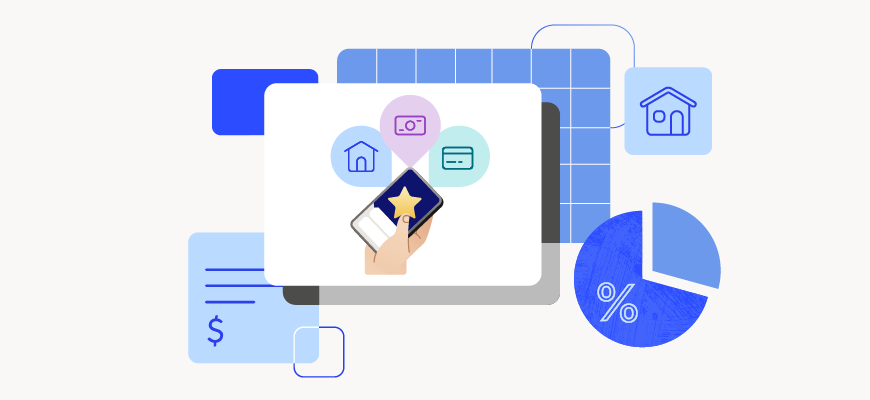For most Canadians, a home is the largest purchase you’ll ever make. Given all the options available for mortgages, it’s important to understand the differences so that you can find the right product for your needs and use credit responsibly.
You will also have to start planning in advance, particularly if you want to improve your credit score in order to help you access more favourable offers and interest rates.
In this Borrowing 101 article, we’ll give you an overview of mortgages to help you understand how this type of credit works and what to be careful of to help protect your credit score.
How do Mortgages Work?
A mortgage is a loan to help you finance the purchase of a home. When you take out a mortgage you’re promising to repay the money you’ve borrowed plus interest over a predetermined length of time. A mortgage is a secured loan. Your house is used as collateral which means that if you can’t make your monthly mortgage payments the lender can seize your house as payment.
Mortgage interest rates and terms vary depending on a variety of factors including your credit score, the size of your down payment, and your debt to income ratio. The more likely it is that a lender thinks you will be able to repay your loan (because you have a good credit history, your income is high enough to make monthly payments on all your debts, etc.) the more favourable rates and terms you’ll be offered.
Your mortgage lender will outline the amount they’re willing to lend you, the interest rate (fixed or variable), the term of the loan (25 years is a common length), what the principal and interest payments are as well as when they’re due. In the early years of your mortgage interest will make up a greater portion of your overall payment.
As time goes on and your mortgage balance goes down, you’ll start to pay more principle than interest. You can read more about mortgages at the Government of Canada’s Financial Consumer Agency website.
When are Mortgages Useful?
You will need to get a mortgage if you wish to buy a home and cannot pay for the full cost of it in cash, which is the reality for the vast majority of Canadians. The size of the mortgage you get will depend on your financial situation as well as your lifestyle preferences.
What to be Careful of
A mortgage represents a huge financial commitment that should not be taken lightly. Since it will be a debt that you carry for a long period of time, you’ll want to get a mortgage with the most favourable rate and terms possible.
Your credit score is one of the main factors that will determine the rate you’re eligible for. Checking your credit score, taking the necessary steps to boost your credit health, and shopping around for the best deal are three things you should plan to do leading up to an application. You can also see the mortgages that best match your credit profile and likelihood of approval when you check your credit score with Borrowell.
It’s also important to understand that if the value of your home goes down your mortgage balance could end up greater than the value of your house. Many people buy a home with the assumption that the real estate market will continuously go up in value, or rely on their home in place of other long-term investments, but that’s a risky financial position to put yourself in.
Make sure you only buy as much house as you can afford. A mortgage is not a revolving loan. Once you make those monthly payments you can’t access that money again, so be sure to have a sizable emergency fund saved up.
Regardless of how you and your family’s income fluctuates over time, you’ll still be expected to make regular monthly payments. If you cannot continue to make those payments you risk defaulting on your mortgage and the lender can seize your home. If you think you will struggle with paying your bills on time and cannot make monthly payments, there are options like refinancing or payment deferrals.
The Bottom Line
Before applying for any type of mortgage, check your Equifax credit score free through Borrowell and see if there is anything you can do to improve your financial health. Increasing your score can mean more attractive interest rates and offers on things like credit cards, loans, mortgages and lines of credit. Sign up or Log in to quickly see which products match your profile and your likelihood of approval.
Used wisely, credit can be a wonderful tool to help you achieve your lifestyle and financial goals. Always make a plan for how you’ll use the money and how you’ll pay it back.

Trusted by over 3 million Canadians, Borrowell provides free weekly credit scores and report monitoring, personalized financial product recommendations and affordable tools to help you build your credit. Sign up for your free Borrowell account today on borrowell.com, or download the mobile app for Android or iOS.




